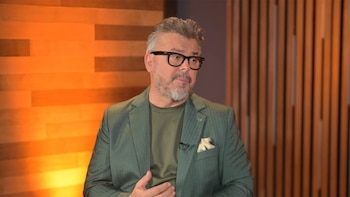
(ATR) Olympic journalist John Rodda was remembered by friends and colleagues July 2 at a service held at St. Bride,s Church, known as the church of the press for its location on Fleet Street. Rodda died in early March at age 78 after a long career covering British sport and the Olympics for the Guardian newspaper. Reporter Steven Downes filed this account of the memorial.
It was reminiscent of the opening scene from Chariots of Fire, that almost sepia-tinted celebration of some of the glories and less-than-glorious aspects of Olympism, as we all filed through the elegant portico into the entrance of St Bride's, designed 500 years ago by Christopher Wren.
Chariots was released in 1981, as the running boom began in Britain and when the country's athletes bestrode the tracks of the world like latter day Titans.
The film opens at the memorial service for Harold Abrahams (which had been held at another Wren church, St Clement Danes), and Thursday's memorial service for John Rodda, held in the journalists church off Fleet Street, would recall both the 1924 Olympic 100 meters champion and the more recent golden decade of British athletics.
The congregation heard not only of Rodda's outstanding reporting skills, but had a message from London 2012 chair and Olympic Seb Coe which told his belief that were it not for Rodda's influential columns in the Guardian, he may have been denied his historic feat of two Olympic golds at 1,500 meters.
As well as John's large collection of children and grandchildren, all lovingly corralled by widow Yveline, among those assembled there were other parallels with the Abrahams memorial all those years ago. Gathered here were old colleagues from Rodda's newspaper, a peer of the realm representing the BOA, past Olympic competitors and figures from athletics clubs, as well as track writers.
John Samuel, sports editor for a lengthy spell during the Rodda's 37 years at The Guardian, was there, as was David Miller, his old rival for stories in the Olympic corridors of power.
Sydney Hulls, the former athletics and boxing man at the Express, was there with chums Alan Hubbard and Colin Hart.
Hulls is possibly the oldest surviving original member from the formation of what was then the Sports Writers Association, having joined in 1948, a year or so before Rodda did.
The choir sang Vaughan Williams and Handel gloriously, and the addresses gave full tribute to Rodda's work and sheer humanity.
John Goodbody hinted at Rodda's disapproval that among his athletics correspondent rivals were Abrahams and Jack Crump, when both were still active officials within the sport. "John's attitude was not to respect officials," Goodbody said, "butto always suspect them."
Rodda's former Guardian editor, Peter Preston, paid tribute to his reporter's world scoop in Mexico City in 1968, when he found himself in the midst of an army massacre of students and union officials.
While Sebastian Coe was away on Olympic business, his written tribute, read by Nick Mason, made clear his admiration for Rodda.
John "had a good political nose and was an assiduous student of history," Coe said. "It was that combination coupled with an abiding love of sport that kept him at the forefront of his profession for significantly longer than most."
And it was before the 1984 Los Angeles Olympics that Rodda helped Coe to make history.
"His status in the sport was so unquestioned, drawn through a lifetime of watching elite competitors with all their vulnerabilities that his strongly and cogently argued case for my inclusion was crucially enough to flick the tiller of opinion in my direction.
"I think that without his intervention I might never have been able to successfully defend my Olympic title," Coe said. "For that, I am forever grateful."
It was an apt tribute for a service of thanks giving for the life of John Rodda.
Written by Steven Downes
For general comments or questions, click here
Últimas Noticias
Sinner-Alcaraz, the duel that came to succeed the three phenomenons
Table tennis: Brazil’s Bruna Costa Alexandre will be Olympic and Paralympic in Paris 2024

Rugby 7s: the best player of 2023 would only play the medal match in Paris

Rhonex Kipruto, owner of the world record for the 10000 meters on the road, was suspended for six years

Katie Ledecky spoke about doping Chinese swimmers: “It’s difficult to go to Paris knowing that we’re going to compete with some of these athletes”



